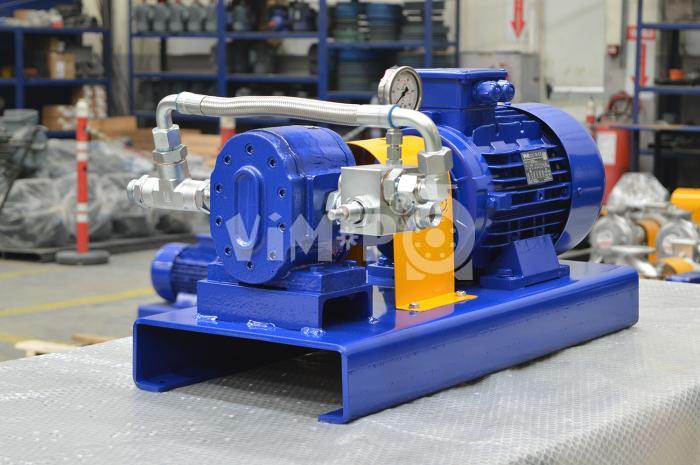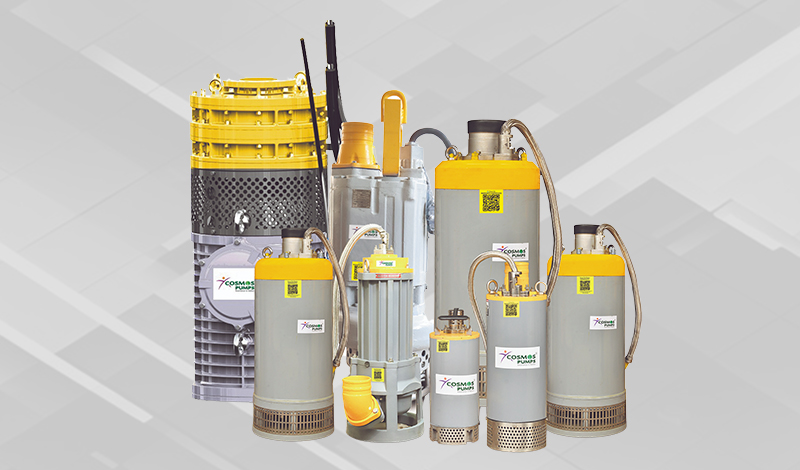Selecting the right high-pressure gear pump for an industrial application is a critical decision that can significantly impact efficiency, equipment longevity, and operational safety. These pumps are widely used in industries such as chemical processing, oil and gas, manufacturing, and hydraulics because of their ability to handle viscous fluids under high pressure. With so many options available, understanding the key factors in selecting a high-pressure gear pump can save time, money, and potential downtime.
Understanding High-Pressure Gear Pumps
High-pressure gear pumps are positive displacement pumps that use meshing gears to transfer fluids. They are designed to provide consistent flow rates and handle high-viscosity liquids, making them suitable for demanding industrial processes. Unlike centrifugal pumps, gear pumps deliver a constant flow regardless of system pressure, which is crucial for precision applications.
When sourcing a pump, partnering with a reliable gear pump manufacturer ensures access to high-quality components and engineering support. A trusted manufacturer can guide you on material selection, design options, and maintenance requirements tailored to your specific application.
Key Considerations When Choosing a High-Pressure Gear Pump
1. Flow Rate Requirements
The flow rate is one of the most important factors in pump selection. It determines how much fluid the pump can move within a given timeframe. Calculating the required flow rate involves understanding the process demands and fluid properties. Selecting a pump that exceeds or falls short of these requirements can lead to inefficiency or potential system damage.
2. Pressure Rating
High-pressure gear pumps are designed to operate under varying pressure conditions. Before choosing a pump, evaluate the maximum pressure your system requires. Operating a pump beyond its rated pressure can cause premature wear, seal failure, and reduced efficiency. Gear pump manufacturers often provide detailed specifications for maximum operating pressures, which can guide your selection.
3. Fluid Compatibility
Not all pumps handle every type of fluid effectively. Factors like chemical composition, viscosity, and temperature must be considered to prevent damage or corrosion. High-pressure gear pumps are available in materials like stainless steel, cast iron, or specialized alloys. Choosing the right material based on fluid compatibility enhances durability and reduces maintenance costs.
4. Temperature Range
Industrial fluids can vary widely in temperature. Pumps exposed to extreme heat or cold require materials and designs that can withstand thermal expansion, contraction, and potential fluid degradation. Check with your gear pump manufacturer to ensure the pump can operate efficiently across your system’s temperature range.
5. Efficiency and Energy Consumption
Energy efficiency is a critical consideration in modern industrial systems. A pump that matches your system’s flow and pressure requirements minimizes energy waste. High-efficiency gear pumps reduce operational costs while maintaining consistent performance, making them a preferred choice for industrial operations.
6. Maintenance and Serviceability
Ease of maintenance can impact long-term operational costs and downtime. Pumps with accessible components, standardized parts, and support from the gear pump manufacturer simplify repairs and routine servicing. Evaluate the availability of replacement parts and the manufacturer’s reputation for technical support when making a decision.
7. Noise and Vibration Levels
Excessive noise or vibration can indicate inefficiency or potential mechanical issues. High-pressure gear pumps designed with tight tolerances and quality materials often operate more quietly. Consider pumps with vibration-dampening features if your industrial environment is sensitive to noise or mechanical stress.
8. Customization Options
Some industrial applications require specialized pump designs to handle unique fluids or operational conditions. Leading gear pump manufacturers can provide customization options such as modified gear materials, shaft configurations, and mounting options. Customization ensures optimal performance and longevity for your specific application.
Common Applications of High-Pressure Gear Pumps
High-pressure gear pumps are versatile and widely used across multiple industries. Common applications include:
- Hydraulic Systems: Delivering precise, high-pressure fluid flow for machinery operation.
- Chemical Processing: Handling corrosive or viscous chemicals safely and efficiently.
- Oil and Gas: Transferring fuel, lubricants, and other petroleum-based products.
- Food and Beverage: Pumping syrups, oils, and other high-viscosity ingredients under sanitary conditions.
- Industrial Manufacturing: Circulating lubricants and process fluids in production machinery.
Understanding the specific requirements of your application helps determine the optimal pump design and material.
Tips for Working with a Gear Pump Manufacturer
Choosing the right gear pump manufacturer is as important as selecting the pump itself. Here are some tips to ensure a successful partnership:
- Check Industry Experience: Manufacturers with extensive experience in high-pressure gear pumps understand the nuances of different applications and can recommend the best solution.
- Evaluate Technical Support: Look for manufacturers that provide installation guidance, troubleshooting, and ongoing technical support.
- Assess Quality Standards: Ensure the manufacturer follows stringent quality standards and certifications to guarantee reliable performance.
- Seek Customization Capabilities: If your application has unique requirements, a manufacturer that offers customization can provide tailored solutions.
Collaborating with a knowledgeable manufacturer can significantly improve pump performance, longevity, and overall system efficiency.
Selecting the right high-pressure gear pump for industrial applications involves a thorough understanding of flow requirements, pressure ratings, fluid compatibility, and maintenance needs. By carefully evaluating these factors and working with a reputable gear pump manufacturer, businesses can ensure optimal performance, reduce downtime, and extend equipment lifespan.
Investing time in proper pump selection not only enhances efficiency but also contributes to safer and more reliable industrial operations. High-pressure gear pumps, when chosen correctly, are indispensable tools in maintaining smooth, high-performance industrial systems.








